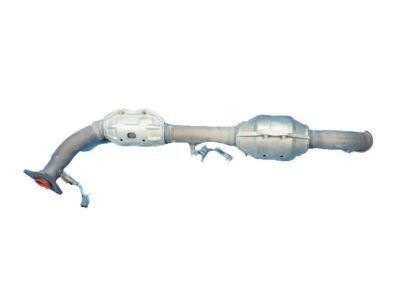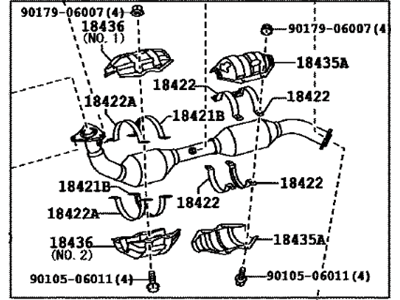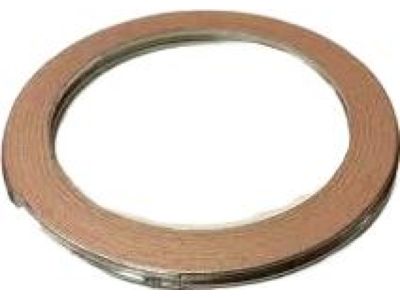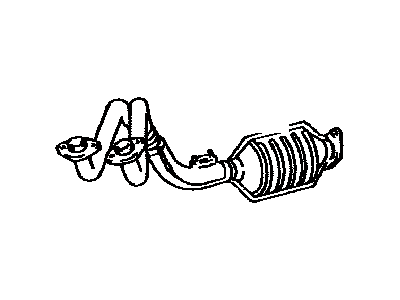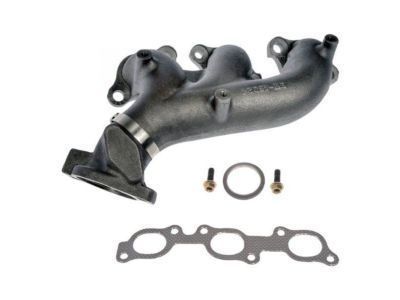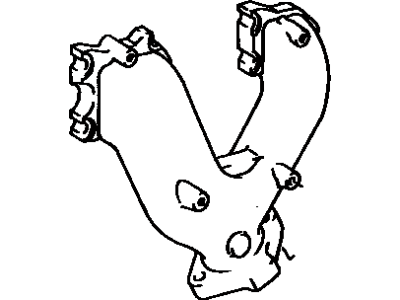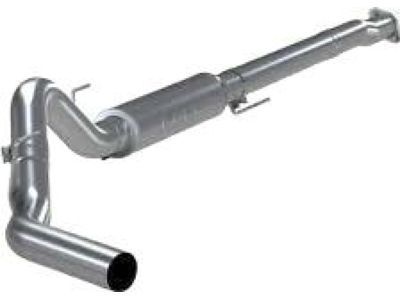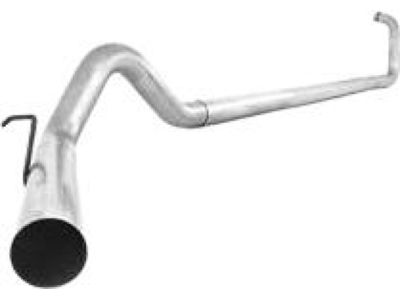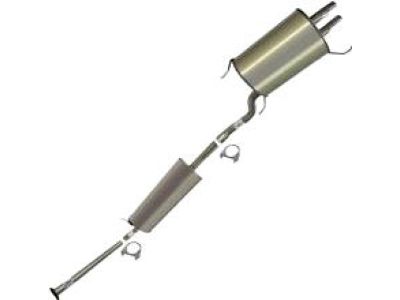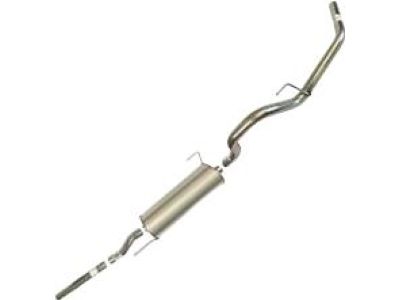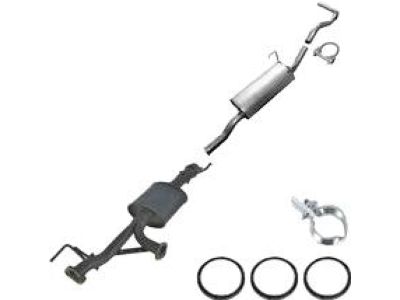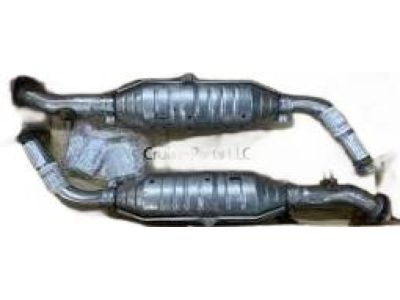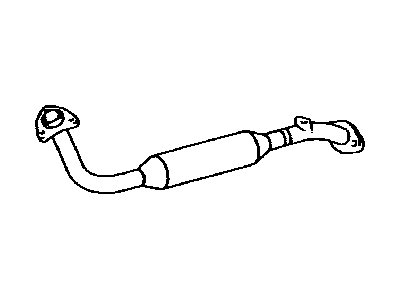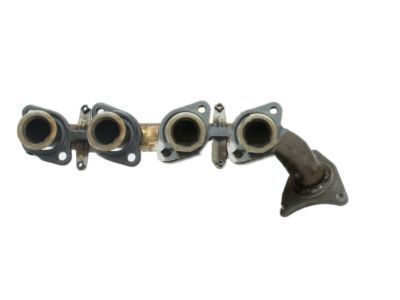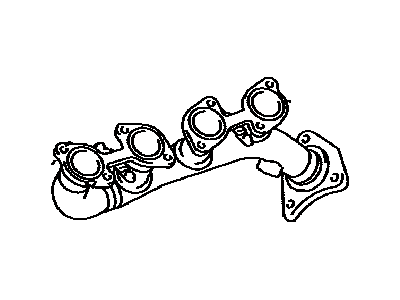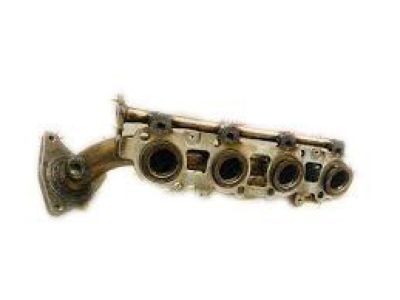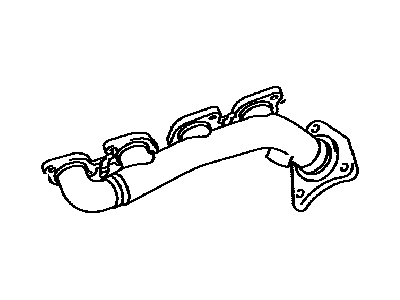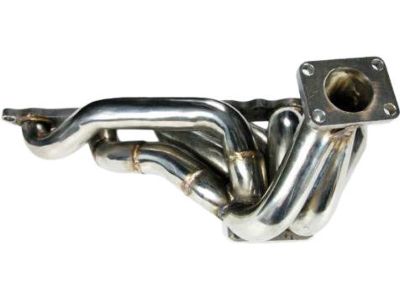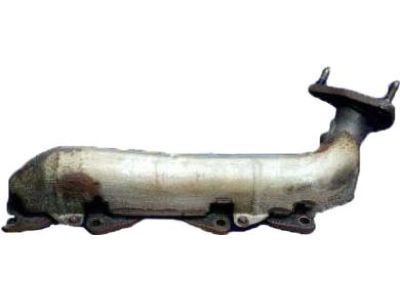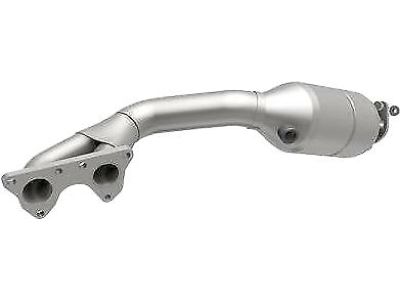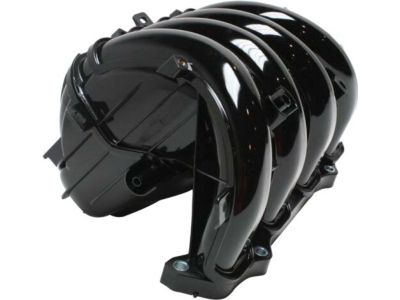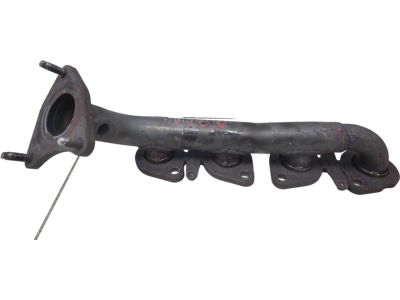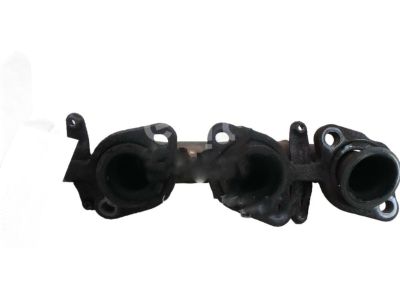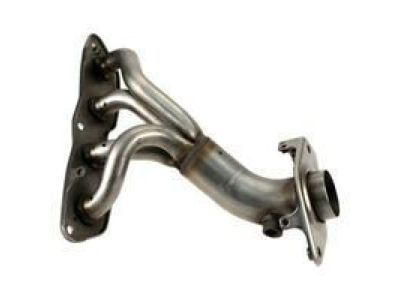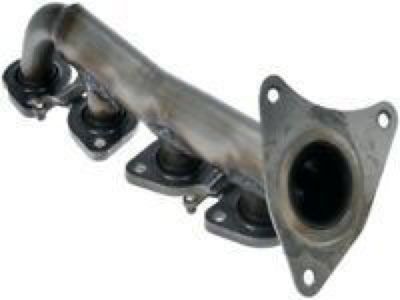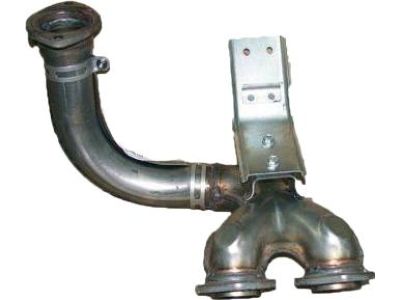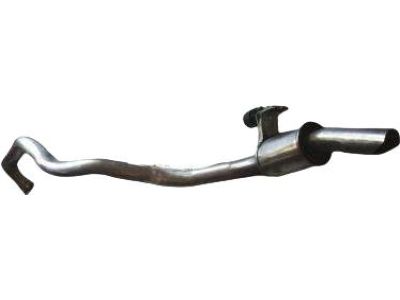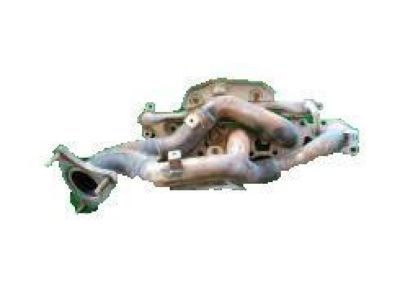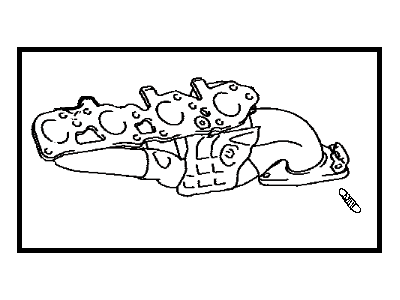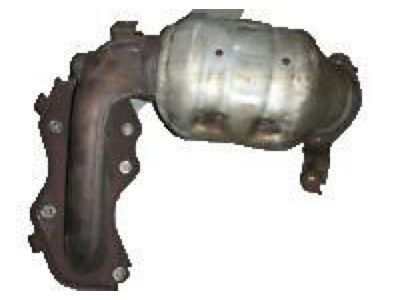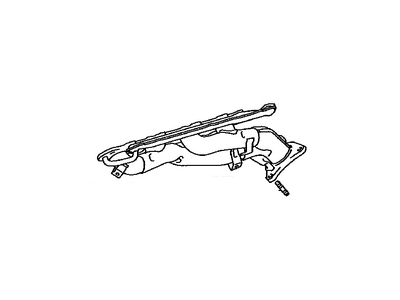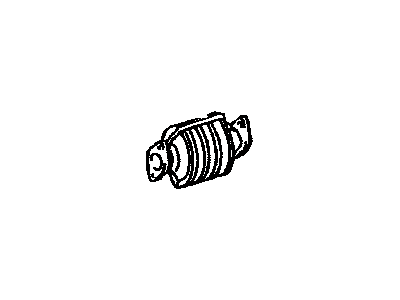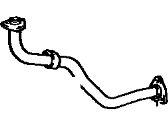

My Garage
My Account
Cart
Genuine Toyota Land Cruiser Catalytic Converter
Cat. Converter- Select Vehicle by Model
- Select Vehicle by VIN
Select Vehicle by Model
orMake
Model
Year
Select Vehicle by VIN
For the most accurate results, select vehicle by your VIN (Vehicle Identification Number).
49 Catalytic Converters found
Toyota Land Cruiser Front Exhaust Pipe Assembly
Part Number: 17410-38310$1371.99 MSRP: $1876.33You Save: $504.34 (27%)Ships in 1-3 Business DaysToyota Land Cruiser Front Exhaust Pipe Assembly
Part Number: 17401-66090$1790.52 MSRP: $2448.71You Save: $658.19 (27%)Ships in 1-3 Business DaysToyota Land Cruiser Exhaust Manifold
Part Number: 17141-66020$171.86 MSRP: $244.34You Save: $72.48 (30%)Ships in 1-3 Business DaysToyota Land Cruiser Front Exhaust Pipe Assembly
Part Number: 17410-50370$1327.10 MSRP: $1814.93You Save: $487.83 (27%)Ships in 1-3 Business DaysToyota Land Cruiser Right Exhaust Manifold Sub-Assembly
Part Number: 17104-50121$350.21 MSRP: $522.44You Save: $172.23 (33%)Ships in 1-3 Business DaysToyota Land Cruiser Exhaust Manifold Sub-Assembly, Left
Part Number: 17105-50200$346.98 MSRP: $517.62You Save: $170.64 (33%)Ships in 1-3 Business DaysToyota Land Cruiser Right Exhaust Manifold Sub-Assembly
Part Number: 17104-50120$350.21 MSRP: $522.44You Save: $172.23 (33%)Ships in 1-3 Business DaysToyota Land Cruiser Exhaust Manifold Sub-Assembly Left
Part Number: 17105-50121$334.82 MSRP: $499.48You Save: $164.66 (33%)Ships in 1-3 Business DaysToyota Land Cruiser Front Exhaust Pipe Assembly
Part Number: 17402-66010$795.83 MSRP: $1088.37You Save: $292.54 (27%)Ships in 1-3 Business DaysToyota Land Cruiser Exhaust Manifold Assembly Right
Part Number: 17140-38010$350.99 MSRP: $523.60You Save: $172.61 (33%)Ships in 1-3 Business DaysToyota Land Cruiser Exhaust Manifold Assembly Left
Part Number: 17150-38010$350.99 MSRP: $523.60You Save: $172.61 (33%)Ships in 1-3 Business DaysToyota Land Cruiser Catalytic Converter Assembly
Part Number: 18450-66120$762.52 MSRP: $968.28You Save: $205.76 (22%)Ships in 1-3 Business DaysToyota Land Cruiser Front Exhaust Pipe Assembly
Part Number: 17410-38270$1712.43 MSRP: $2341.91You Save: $629.48 (27%)Ships in 1-3 Business DaysToyota Land Cruiser Front Exhaust Pipe Assembly
Part Number: 17401-50230$1656.40 MSRP: $2265.27You Save: $608.87 (27%)Ships in 1-3 Business DaysToyota Land Cruiser Front Exhaust Pipe Assembly
Part Number: 17401-50240$1704.41 MSRP: $2330.94You Save: $626.53 (27%)Ships in 1-3 Business DaysToyota Land Cruiser Catalytic Converter Assembly
Part Number: 18450-66010$950.23 MSRP: $1206.65You Save: $256.42 (22%)Ships in 1-3 Business DaysToyota Land Cruiser Right Exhaust Manifold Sub-Assembly
Part Number: 17104-50210$332.21 MSRP: $476.37You Save: $144.16 (31%)Ships in 1-3 Business DaysToyota Land Cruiser Exhaust Manifold Sub-Assembly, Left
Part Number: 17105-50120$334.82 MSRP: $499.48You Save: $164.66 (33%)Ships in 1-3 Business DaysToyota Land Cruiser Front Exhaust Pipe Assembly
Part Number: 17401-66060$697.74 MSRP: $954.24You Save: $256.50 (27%)Ships in 1-3 Business DaysToyota Land Cruiser Exhaust Pipe Assembly
Part Number: 17410-38640$1668.43 MSRP: $2281.73You Save: $613.30 (27%)Ships in 1-3 Business Days
| Page 1 of 3 |Next >
1-20 of 49 Results
Toyota Land Cruiser Catalytic Converter
If you are in demand for superior quality and affordable OEM Toyota Land Cruiser Catalytic Converter, then shop with us! We own a wide range of the reduced-priced genuine Toyota Land Cruiser Catalytic Converter. You can purchase in confidence as all parts come with a manufacturer's warranty. Any issues with our products? No need to worry as we have a hassle-free return policy to guide you every step of the way.
Toyota Land Cruiser Catalytic Converter Parts Questions & Experts Answers
- Q: What is the general description and maintenance check for catalytic converters on Toyota Land Cruiser?A:Due to a federally mandated extended warranty covering emissions-related components like the catalytic converter, it is advisable to consult a dealer service department before incurring replacement costs. Some early carbureted models feature an oxidation catalyst system, which operates similarly to later three-way catalytic converters; if the converter overheats beyond 1,445 degrees F (785 degrees C), a thermo sensor will deactivate the Air Injection system, necessitating inspection by an exhaust system repair facility. To minimize hydrocarbon, carbon monoxide, and oxides of nitrogen emissions, vehicles are equipped with a three-way catalyst system that converts these harmful substances into harmless nitrogen, carbon dioxide, and water, with the catalytic converter positioned in the exhaust system akin to a muffler. Regular checks should include inspecting the catalytic converter-to-exhaust pipe mating flanges and bolts for tightness and leaks, examining the catalytic converter protector for dents or damage that could contact the converter, and ensuring the heat insulator is intact with sufficient clearance from the catalytic converter.
Related Toyota Land Cruiser Parts
Browse by Year
2021 Catalytic Converter 2020 Catalytic Converter 2019 Catalytic Converter 2018 Catalytic Converter 2017 Catalytic Converter 2016 Catalytic Converter 2015 Catalytic Converter 2014 Catalytic Converter 2013 Catalytic Converter 2012 Catalytic Converter 2011 Catalytic Converter 2010 Catalytic Converter 2009 Catalytic Converter 2008 Catalytic Converter 2007 Catalytic Converter 2006 Catalytic Converter 2005 Catalytic Converter 2004 Catalytic Converter 2003 Catalytic Converter 2002 Catalytic Converter 2001 Catalytic Converter 2000 Catalytic Converter 1999 Catalytic Converter 1998 Catalytic Converter 1997 Catalytic Converter 1996 Catalytic Converter 1995 Catalytic Converter 1994 Catalytic Converter 1993 Catalytic Converter 1992 Catalytic Converter 1991 Catalytic Converter 1990 Catalytic Converter 1989 Catalytic Converter 1988 Catalytic Converter 1987 Catalytic Converter 1986 Catalytic Converter 1985 Catalytic Converter 1984 Catalytic Converter 1983 Catalytic Converter 1982 Catalytic Converter 1981 Catalytic Converter 1980 Catalytic Converter 1979 Catalytic Converter 1978 Catalytic Converter 1977 Catalytic Converter 1976 Catalytic Converter 1975 Catalytic Converter 1974 Catalytic Converter 1973 Catalytic Converter 1972 Catalytic Converter 1971 Catalytic Converter 1970 Catalytic Converter 1969 Catalytic Converter
